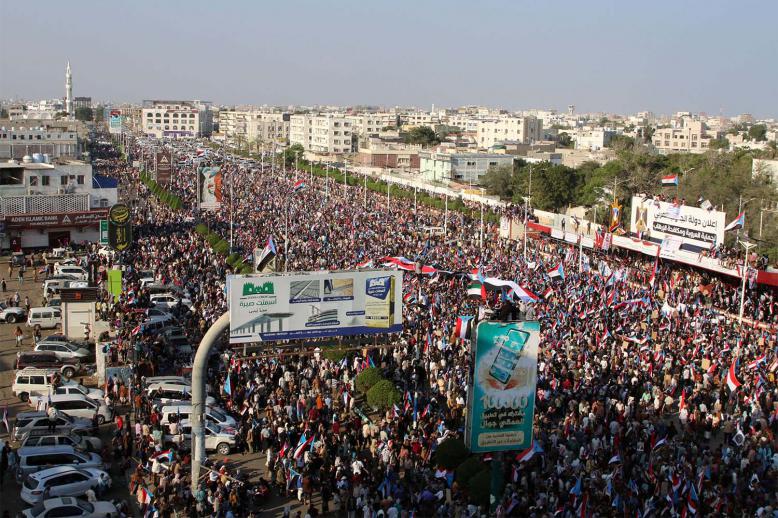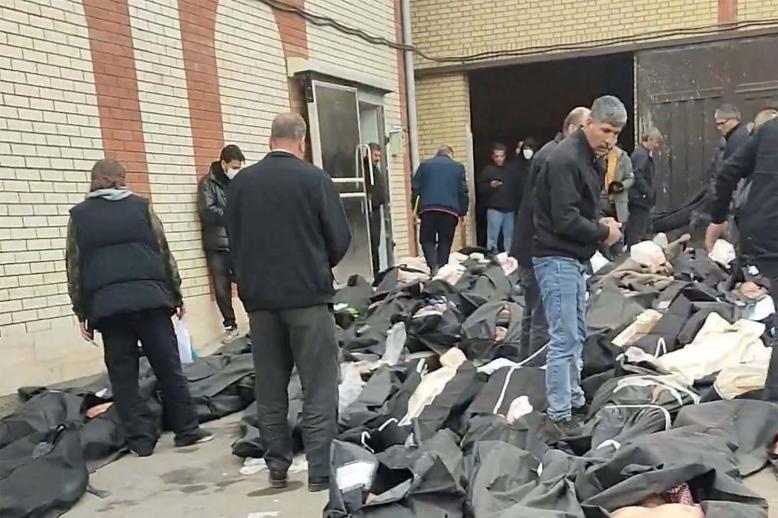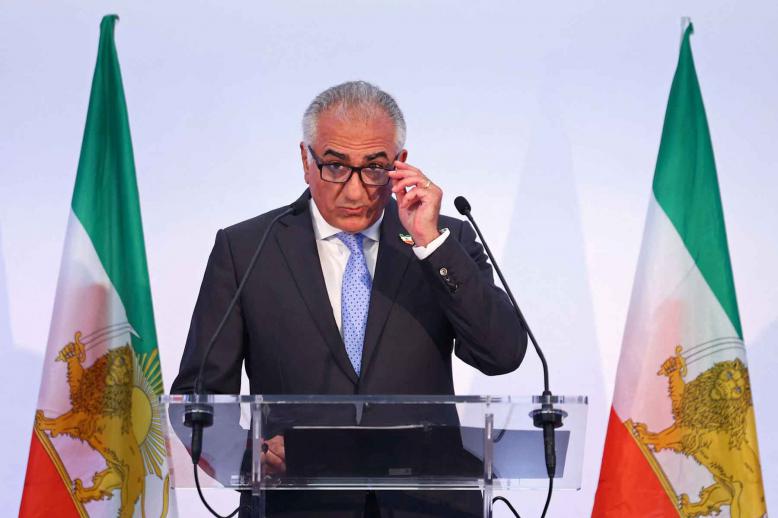Israel teases final death blow for two-state solution
JERUSALEM - With the prosecutor of the International Criminal Court (ICC) poised to launch a war crimes probe of Israel’s settlement policies, Prime Minister Benjamin Netanyahu on Tuesday announced plans to move ahead with the potentially explosive annexation of Palestinian territory in the occupied West Bank, including dozens of Jewish settlements.
He spoke in Washington as President Donald Trump unveiled a Mideast peace plan that matches the Israeli government's nationalistic stance and undercuts Palestinian ambitions.
Israel doubled down on that stance on Wendnesday as Defence Minister Naftali Bennett said Israel should immediately move to establish sovereignty over nearly a third of the occupied West Bank following the announcement of Trump's plan.
"History is knocking at the door," Bennett, a patron of the settler movement, said as he urged Netanyahu to immediately annex all of Israel’s settlements and snuff out any hopes for Palestinian independence. He said Israel would never allow the formation of a Palestinian state.
"Now the campaign is moving from the White House to the Cabinet room in Jerusalem," he said. "Take everything now."
Bennett is vying with Netanyahu for support from right-wing voters ahead of Israeli elections. But it is unclear whether their caretaker administration even has a legal mandate to carry out such a move, with the Israeli political system in electoral deadlock following two inconclusive elections in 2019.
Confounding some predictions, Trump's plan did propose a nominal "two-state" solution, which envisages Israel and a future Palestinian statelet living alongside each other, but with strict conditions that Palestinians have balked at.
The plan draws up borders in a manner that disregards the pre-1967 demarcation lines that have been the basis for the formation of a Palestinian state in decades of failed peace negotiations. Instead, the plan grants US recognition of Jewish settlements built on occupied Palestinian land as well as Israeli sovereignty over the Jordan Valley, which Palestinians consider vital territory for the formation of an independent state.
The plan also ignores Palestinian claims to Israeli-occupied East Jerusalem, a city that has been the focal point of Palestinian society for centuries. In his remarks Trump said that Jerusalem would be the undivided capital of Israel. His plan stipulates that Palestinians should set up governing institutions in order to establish a capital in Abu Dis, a Palestinian town bordering East Jerusalem.
Two-state pipe dream
By contrast, Tel Aviv has been asked to compromise very little and has had no similar conditions imposed upon it. The US ambassador to Israel, David Friedman, even told reporters at the White House that Israel could immediately begin annexation of occupied territory ahead of four years of negotiations on the potential formation of the plan's envisioned Palestinian "state".
Israel's agreement on statehood for Palestinians would also be dependent on a security arrangement to protect Israelis, including demilitarisation of the territory that would leave Israel with total security control over the envisioned "Palestine".
Tourism Minister Yariv Levin, a senior member of Netanyahu's Likud party, said the Palestinian state envisioned by the Trump plan is "roughly the same Palestinian Authority that exists today, with authority to manage civil affairs," but lacking “substantive powers” like border control or a military.
Nahum Barnea, a veteran Israeli columnist, stridently criticized the Trump plan in Wednesday's Hebrew daily Yedioth Ahronoth, saying it would create a Palestinian state "more meager than Andorra, more fractured than the Virgin Islands."
He cautioned that annexation would lead to "a reality of two legal systems for two populations in the same territory — one ruling, the second occupied. In other words, an Apartheid state."
Emboldened by a supportive White House, Israel may be barreling toward a showdown with the international community over its half-century-old settlement enterprise, which is viewed by most countries as a violation of the Fourth Geneva Convention.
This confluence of forces - a dubious peace plan from Washington and a war crimes probe by the ICC's chief prosecutor - could make 2020 the year that finally provides clarity on the status of Israeli settlements and the viability of a two-state solution, which policymakers have intermittently referred to as "dead" or "dying" through years of failed peace talks.
Since capturing the West Bank in the 1967 Middle East war, Israel has slowly and steadily expanded its settlements while stopping short of annexing the territory. The international community has largely condemned the construction as illegal, but has refrained from imposing sanctions or serious punishment in the hope that direct negotiations between Israel and Palestine could yet produce a mutually acceptable peace settlement.
This status quo began to change after Trump took office in early 2017. Surrounded by a team of advisers with close ties to the settlement movement, Trump halted the automatic criticism of settlements as being inconsistent with international law. This resulted in a surge of Israeli construction plans that are just getting underway.
"Over the next year and certainly two years, we’re going to see a sharp increase" in the settler population, Baruch Gordon, director of the West Bank Jewish Population Stats settler group, told the Associated Press. In its annual report, the group said the West Bank settler population grew last year to 463,353 people, in addition to some 300,000 settlers living in East Jerusalem.
"We’re here and we’re not going anywhere," he said.
'White whale'
Trump's warm embrace of Israeli positions without question appears to have played a key role in Netanyahu’s announcement that he plans to annex the Jordan Valley, a strategic area of the West Bank, and Israel’s more than 100 settlements. Although Netanyahu has made promises to his far-right political base for years, he has so far resisted taking any concrete moves to seize land internationally recognised as Palestinian.
Ironically, this warm US embrace could prove to be detrimental. Moving ahead with annexations is likely to trigger harsh international condemnations and possible legal action.
Last month, the chief prosecutor of the ICC, Fatou Bensouda, declared there is a "reasonable basis" to believe that settlement construction constitutes a war crime. Pending final approval from the court, she intends to open a formal investigation, a process that could cause deep embarrassment and discomfort for Israeli leaders.
Yuval Shany, an expert on international law at the Israel Democracy Institute, said annexation would "significantly" raise the risk of triggering prosecution at the ICC. Settlements are widely viewed as illegal based on the Geneva Convention principle that an occupying power is barred from transferring its population into war-won territories.
"That could be a relatively low-hanging fruit for the prosecutor to identify a specific act that is either part of the transfer or significantly aids and abets that transfer," he said.
While Israel does not accept the court’s authority, Netanyahu appears to be taking the threat of prosecution seriously. He has launched harsh attacks against Bensouda and the court, saying the case against Israel is "pure anti-Semitism." He also has tried, with limited success, to rally international opposition to the ICC.
The Palestinians joined the ICC in 2015 after they were accepted as a nonmember state at the United Nations. They then asked the court to look into alleged Israeli crimes in the West Bank, Gaza and east Jerusalem, retroactive to 2014.
The date coincided with Israel’s devastating war in the Gaza Strip, where the vast majority of casualties were Palestinian civilians. In her announcement last month, Bensouda said her probe would look at Israeli military practices as well as the actions of Hamas militants during the 2014 war, in addition to settlement activity.
Shany said Israel is much more vulnerable on the settlement issue than it is with regard to Gaza. Israel’s military has mechanisms to investigate alleged wrongdoing by its troops, and despite criticism that this system is insufficient, it has a good chance of fending off the ICC.
When it comes to settlements, however, Israel will have a much more difficult time defending its actions.
While the court would have a hard time prosecuting Israelis, it could issue arrest warrants that would make it difficult for Israeli officials to travel abroad. A case in the ICC would also be deeply embarrassing to the government, Shany said.
"The big white whale is the settlements," he said. "That would be a major PR disaster for the country."






